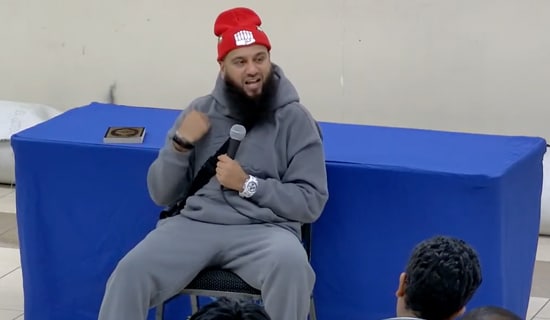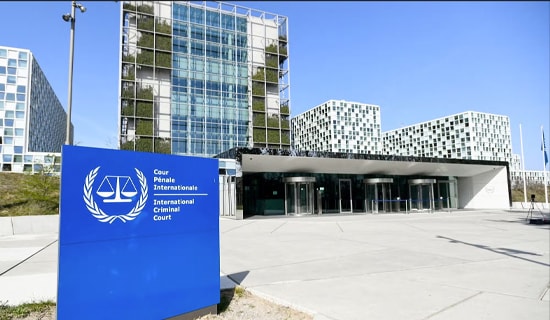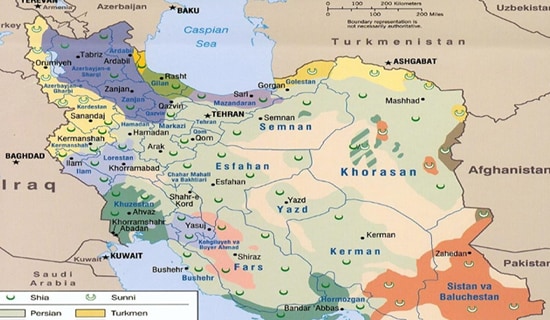As part of the political power struggle between Fatah and Hamas, Fatah has initiated a public confrontation with Hamas over the issue of Friday prayers. Claiming that Hamas has appropriated the mosques, and that the imams use their pulpits to incite the public against Fatah, the latter arranged for Friday prayers in Gaza to be held outside the mosques, in open public venues. Hamas, in response, banned these prayers on the grounds that they are meant to wreak chaos, and even forcibly dispersed the worshipers. Several senior Fatah officials, including Zakariya Al-Agha, were apprehended during a Friday prayer, and fines were levied for those who participated in demonstrations that took place after the Friday prayers outside the mosques. In several instances, residents received threatening calls to their mobile phones with warnings not to participate in prayers held in city squares and other public venues instead of in the mosques.
The Hamas-Fatah conflict has evolved into a war of fatwas over the permissibility of praying outside the mosques and over the authority to pass such rulings. The Palestinian Clerics Association, which is affiliated with Hamas, bans prayers in the open air, while a ruling by the Palestinian Chief Justice Sheikh Taysir Al-Tamimi and Palestinian Grand Mufti Sheikh Muhammad Hussein, who are associated with the PA and Fatah, permits them.
The following are excerpts from the fatwas and responses in the media:
Senior PA Official: Hamas Chose Methods of War Criminals
On Friday, September 7, PLO Executive Committee arranged prayers in the squares and mosques, stating that this was being done "in protest against allegations of heresy and treason [made by Hamas against Fatah], and against spreading benighted and ignorant ideas which disrupt unity and harm the Islamic faith."[1]
Yahya Rabah, former PA Ambassador to Yemen and columnist for the PA daily Al-Hayat Al-Jadida, wrote: "[Certain] individuals mount the pulpits of the mosques through the power of the gun. They have no religious, political, or scientific training, and they transform these pulpits into loudspeakers for sounding black calls of enmity and ugly hatred, without being deterred in the least by religion, conscience, or national responsibility."[2]
With regard to the use of force and prevention of prayers in open-air public venues in Gaza, Palestinian President Mahmoud Abbas stated at a press conference that "the actions of the putschists [i.e. Hamas members] against the worshipers and the believers broke one's heart and made one feel ashamed that such individuals were part of the Palestinian people."[3]
Fatah spokesman Dr Jamal Nazzal wondered "how the militias of Hamas – an organization which perceives itself as Islamic – could have had the audacity to fire at the worshipers." He expressed hope that "Friday prayers and peaceful gatherings would mark the beginning of the downfall of the Hamas rule."[4]
Especially harsh criticism was voiced by Yousef Al-Qazzaz, a senior official at the Palestinian Broadcasting Authority and columnist for the Palestinian daily Al-Hayat Al-Jadida, who wrote: "Hamas leaders have adopted the methods of war criminals in their treatment of the Palestinian people in Gaza. This compels us to restrict the actions of these murderers even futher. The [Palestinian] National Authority must take steps against them and put them on trial just like the war criminals in Bosnia and the Balkans. It must be made clear to the Europeans that Hamas is a threat to the peace process in the region."[5] In another article, Al-Qazzaz wrote: "The people have embarked on an extensive national struggle to eradicate terrorist criminals from among Hamas, its leadership, its imams, and its preachers in the mosques of Gaza, which is currently in the grip of the loathsome culture of isolation and mutual accusations of heresy, supported by the Al-Qaeda terrorists."[6]
During the Friday prayers attended by Mahmoud Abbas, which took place in the Muqata'a in Ramallah, Palestinian Welfare Minister Mahmoud Al-Habbash stated in a sermon that "sooner or later Gaza would be liberated from the putschists." He added: "There are some who falsely brandish slogans of the Islamic faith, while their hearts are full of enmity and darkness. They murder people and defile the sacred."[7]
Fatwas For and Against Prayers Outside the Mosques
The Palestinian Clerics Association in Gaza, which is affiliated with Hamas, issued a fatwa against holding prayers out of doors. Association Chairman Marwan Abu Ras, who is also a Legislative Council member representing Hamas, explained the fatwa at a press conference, saying: "When [people] choose to abandon the mosques and pray in [outdoor] public places, it is a [declaration of] war against the houses of worship, and against their sacredness and prestige. In light of [people's] insistence on continuing [this practice], we think that these prayers are dangerous, and that no person in Gaza or the West Bank should participate in them, regardless of who is sponsoring them. The authorities must ban these prayers, and declare that [prayers] must be held in mosques, for the reasons already stated, and [also] because it is known that many of those who participate in these prayers are not in the habit of praying, but [only mean to engage in] sabotage, incite civil strife, create trouble, intimidate peaceful citizens, and reinstate the chaos. [The correctness of the fatwa] is proved by the action of the Prophet, who destroyed the Dhurar mosque, then burned it down and banned prayers on its site. This kind of prayer is exactly like the prayer that is said by the hypocrites who pretended to be believers.[8]
On the other hand, Palestinian Chief Justice and acting head of the Palestinian Authority's Shari'a Judicial System Sheikh Taysir Al-Tamimi ruled that it was permissible to pray outside the mosques under the open sky and in public venues. He wrote: "[The only] official body authorized to issue fatwas is shari'a courts or the Mufti's office." He added, "The fatwa that prohibited praying under the open sky was not based on a text or on the evidence from the shari'a, since the Prophet's Sunna explicitly ruled, both in word and in deed, that prayer is permissible in any place. The Prophet said: 'The Earth has become a mosque and a pure place. [Every] one from among my nation will pray in every place he finds himself.'"[9]
Palestinian Grand Mufti Sheikh Muhammad Hussein also ruled that it was permissible to hold Friday prayers in public venues. He stated: "During Friday prayers in large and crowded mosques... such as Al-Aqsa, people are sometimes standing behind the imam [outside] in the square and in the streets, and [despite this] the prayer is considered valid." He further elaborated that "prayers under the open sky were considered perfectly permissible, based on the Prophet's actions during the hijra." According to him, "outdoor prayers cannot be prohibited out of fear that... chaos may ensue after the prayers… since those who intend to cause chaos can do so equally well after the prayers [held in the mosque] are finished. "[10]
Fatah Spokesman in the West Bank: Hamas is Waging Ideological and Religious Terrorism
Fatah spokesman in the West Bank Fahmi Al-Za'arir harshly criticized the ruling of the Palestinian religious scholars, describing it as "the fatwa of the rulers." He added: "Hamas is waging diverse kinds of terrorism, including ideological and religious."[11]
Fatah legislative council member 'Isa Qaraqi' claimed that "the prohibition against holding prayers outside the mosques based on a religious ruling is a clear declaration of the politicization of religion. There is no precedent in Arab Islamic history whereby a religious ruling was issued or a decision made prohibiting the people from praying where they pleased. This means that Hamas is taking advantage of religion to promote political interests, which is a breach of religion and religious law, and a violation of their principles and foundations." Qaraqi' warned about the practice of issuing fatwas for political purposes, saying that "to transform the Palestinian society into one of religious rulings that serve party interests is to threaten the Palestinian civil society, and political and social pluralism."[12]
Editor of the PA daily Al-Hayat Al-Jadida Hafez Al-Bargouti wrote: "[The village of] Bil'in gained a victory [thanks to] its steadfastness and patience. Every Friday, its people gathered to pray under the open sky, and then held a prayer [in protest] against the [separation] fence. The ruling of Israel's [Supreme] Court is a victory for Bil'in and its resolute stance. [Conversely], the [Hamas] religious scholars issued fatwas banning outdoor prayers, at the request of the deposed government and its executive forces. They tailor the religion to their moods and issue fatwas by order, as if they were running a taxi [service] or a pizza [parlor]. Anyone who issues a fatwa that harms the people and the state for the benefit of [some] party, tyrant, or business tycoon is a sinner, and will [eventually] pay [for his sin]. In the past few generations, the phenomenon of 'fatwas to order' – i.e. [fatwas] issued by activists and yes-men for the benefit of leaders and parties – has become widespread."[13]
*C. Jacob is a research fellow at MEMRI.
Endnotes:
[1] Al-Hayat Al-Jadida (PA), September 2, 2007.
[2] Al-Hayat Al-Jadida (PA), August 26, 2007.
[3] Al-Ayyam (PA), September 8, 2007.
[4] Al-Hayat Al-Jadida (PA), August 25, 2007.
[5] Al-Hayat Al-Jadida (PA), September 1, 2007.
[6] Al-Hayat Al-Jadida (PA), September 9, 2007.
[7] Al-Ayyam (PA), September 8, 2007.
[8] Al-Sharq Al-Awsat (London), September 5, 2007.
[9] Al-Sharq Al-Awsat (London), September 5, 2007.
[10] Al-Hayat Al-Jadida (PA) and Al-Quds (Jerusalem), September 6, 2007.
[11] Al-Quds Al-Arabi (London), September 7, 2007.
[12] Al-Quds (Jerusalem), September 7, 2007.
[13] Al-Hayat Al-Jadida (PA), September 5, 2007.








